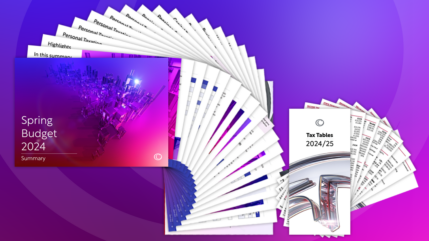From 6 October 2020, the government introduced new rules significantly increasing the number of trusts required to be registered with HM Revenue & Customs (HMRC).
The Trust Registration Service (TRS) is an online service which helps trustees comply with their obligations.
The new rules require all UK trusts (with a few exceptions) and some non-UK trusts to register with HMRC by 1 September 2022, including trusts that have closed since 6 October 2020.
Which trusts must register?
- All Taxable trusts i.e. those with a UK tax liability.
- All UK and some non-UK express trusts, unless explicitly excluded from registration as an “excluded express trust”
A trust is a UK trust for TRS purposes if all trustees are resident in the UK.
Where there’s a mixture of UK resident and non-resident trustees acting at the same time, the trust is a UK trust for TRS purposes if the settlor of the trust was resident and domiciled in the UK at the time the trust was set up, or when the settlor added funds to the trust. Otherwise, the trust is a non-UK trust.
If all trustees are resident outside the UK, the trust is a non-UK trust for TRS purposes.
Some trusts may be reportable because they have a liability to UK taxation and they’re express trusts, so fall into both categories, but there are two levels of reporting requirements within the TRS which apply to the different classifications. Both types will have to identify persons involved with the trust (settlor, trustees and beneficiaries). Any taxable trust must also provide additional information regarding the assets held within the trust as at the time of registration.
Failing to register trusts and/or keep the register up to date could potentially result in the trustees receiving a penalty from HMRC (trustees’ ongoing obligations are covered later in this commentary).
What information needs to be registered?
Trustees must supply information of all persons involved in the trust – the ‘beneficial owners’ – i.e. settlor, trustees and beneficiaries. These details include names, dates of birth, contact details and National Insurance (NI) number of the lead trustee, nationality and country of residence. Date of death is required for a trust created by a settlor’s will.
The TRS is also the way that trustees notify HMRC that their trust has tax to pay. By registering ‘relevant’ trusts with the TRS a trust will obtain a Unique Taxpayer Reference. This usually arrives within 15 days and is required to complete a Self-Assessment tax return for the trust. Where the trust is non-taxable, the trustees will receive a Unique Reference Number (URN).
Taxable trusts
Taxable trusts are already required to register on TRS and may be created by deed or otherwise. The type of tax reportable may be:
- Income tax
- Capital gains tax
- Stamp duty land or land reserve tax
- Inheritance tax
Even where there is no tax liability, the following types of trusts must be registered:
- All UK resident express trusts (a trust deliberately created by a settlor) — unless specifically excluded
- Non-UK express trusts, such as trusts that acquire land or property in the UK, or have at least one trustee resident in the UK and enter into a ‘business relationship’ within the UK
- If the trust is not resident in the UK (‘non-resident trusts’), you must register the trust if it becomes liable for tax on income coming from the UK or on UK assets.
- If the trust has a tax liability but this is covered by a relief and you wish to claim the relief through Self-Assessment.
Some trusts are excluded from registration:
- There are numerous exclusions from the requirement to register which include (but are not limited to) UK registered pension schemes
- Bank accounts for children, Child trust funds or Junior ISA’s (JISAs)
- Trusts for vulnerable beneficiaries or bereaved minors
- Protection life insurance policies, those paying out on critical illness or disablement, including group policies.
- A will trust wound up within two years of death
- Charitable trusts
- A trust imposed by courts or created by legislation
A full list can be found within the HMRC Trust Registration Service Manual available at GOV.UK.
How to register a trust
Trusts may be registered with TRS by a lead trustee or by an agent (i,e, a tax agent)
Trust registration can then be completed online on the government website, at https://www.gov.uk/guidance/register-a-trust-as-a-trustee
Ways to register a trust
A trustee can register directly using the HMRC online service. One trustee must be designated as the ‘lead trustee’ for HMRC correspondence.
The lead trustee must first obtain an organisation Government Gateway user ID and password.
Through an agent
Trustees can authorise an agent to register the trust on their behalf. Please note that only firms operating as accountancy service providers can register as an agent.
If an agent is registering a trust on behalf of trustees, they will need to have been registered with HMRC as an agent.
Through Courtiers
Courtiers does not operate as an accountancy service provider, so it cannot operate solely as an agent to register a trust. However, working with a reputable accountancy through a well-established relationship, Courtiers is able to assist clients with the registration process.
What are the deadlines for trust registration and updating the TRS?
- Non-taxable trusts in existence on or after 6 October 2020 must be registered by 1 September 2022.
- A trust which becomes registerable in the 90 days immediately prior to 1 September 2022 must instead register within 90 days of the date of creation.
- Non-taxable trusts created after 1 September 2022 must be registered within 90 days.
Trustees’ ongoing obligations
The TRS details must be kept up to date. Changes to the trust details or beneficial ownership must be registered within 90 days of the date that the trustees become aware of these changes.
Additionally, for taxable trusts the trustees must declare the trust is up to date. This must be done annually by 31 January following the end of the tax yea using HMRC’s online service.
For further information, please contact your Financial Adviser.













